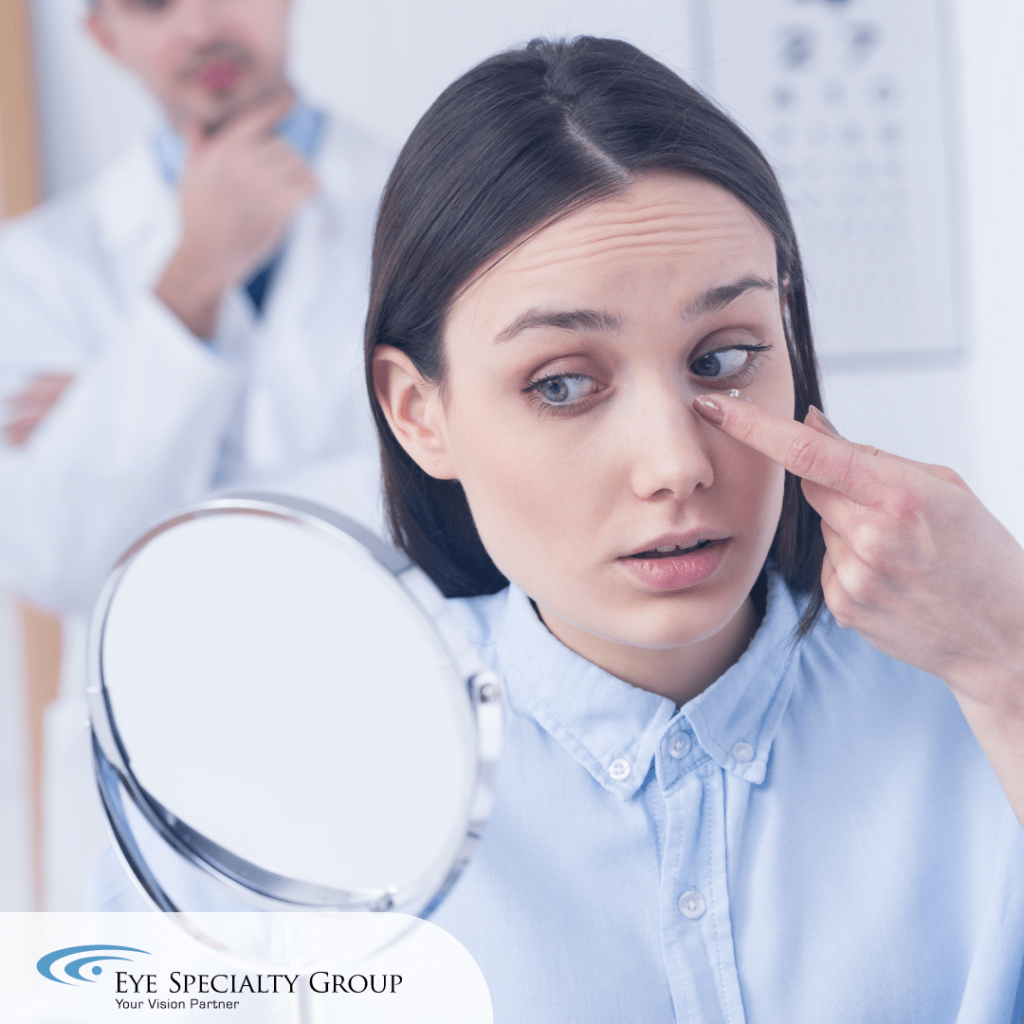
Did you know that some of the most common causes of blindness in the United States are preventable? So, what can you do to make sure you preserve your vision for as long as possible?
Some preventive measures are simpler and easier than you might think. Here, we discuss four leading causes of blindness and offer doable steps you can take to make sure they don’t plunge you into darkness.
1. Diabetic Retinopathy
Uncontrolled diabetes has catastrophic consequences for every organ and system of the body – the eyes are no exception. Diabetic retinopathy, or DR, happens when diabetes damages light-sensitive tissues and blood vessels in the eye. This devastating condition is the leading cause of blindness in adults in the United States. To date, it is estimated that more than 4 million adults in the U.S. have diabetic retinopathy.
Blindness prevention tip: The importance of getting diabetes under control cannot be overstated. In addition to damaging vision, diabetes can lead to poor circulation, heart disease, nerve damage, chronic kidney disease and more. Work with an endocrinologist to manage diabetes before damage occurs.
2. Cataracts
Another leading cause of blindness in adults is cataract, the clouding of the eye’s lens that blurs vision. Everyone who is fortunate enough to reach old age will deal with cataracts eventually – but blindness doesn’t have to be a natural consequence of getting older.
Blindness prevention tip: Monitor your vision through annual eye examinations. The earliest stages of cataract development can often be mistaken for other changes, such as presbyopia, or “over-40 vision.” However, your ophthalmologist can easily identify cataracts early, often before you notice any symptoms. Together, you and your eye doctor can plan ahead to keep your eyesight sharp.
3. Vitamin A Deficiency
Vitamin A plays a vital role in protecting and nourishing the eye. Without enough of it, the corneas can become easily injured or scarred, leading to vision loss.
Blindness prevention tip: As with any other part of the body, the eyes benefit from a balanced diet that includes lean proteins and plenty of fresh vegetables. If you’re looking to tank up on vitamin A specifically, here are some great sources:
- liver (beef or lamb)
- naturally oily fish (salmon, mackerel)
- cheese
- whole milk
- butter
- eggs
- mangos
- citrus fruits
- tomatoes
- red bell pepper
- leafy green vegetables
- Contact lenses
Because they come in direct contact with your eyes, contact lenses can be risky for even the most diligent wearers. Minor damage or contamination can lead to dangerous – and potentially blinding – injuries and infections. Contacts can create risk in a number of ways.
- dust or debris under the lens
- torn or damaged lens
- contaminated lenses, containers or lens solution
- inadvertent eye-touching
- contact lens intolerance
Blindness prevention tip: Follow the contact lens manufacturer’s instructions and your eye doctor’s advice on how to care for contact lenses. This includes how often to replace contacts and related supplies, when to remove contact lenses, how to clean contacts and more.
The surest way to avoid blindness from contact lenses is to get out of them entirely. You can do this in two ways: 1. Go back to wearing glasses. 2. Get LASIK surgery and be completely free of contact lenses and eyeglasses.
Want to know if LASIK is an option for you? Take our 60-second LASIK Self-Test to see if you’re a candidate.
ABOUT EYE SPECIALTY GROUP
Eye Specialty Group offers patients a wide range of vision services, from specialized glaucoma treatment, laser cataract surgery and retina surgery to LASIK and eye reconstructive surgery. Vision correction procedures include Blade-Free iLASIK, PRK, Implantable Contact Lenses, Clear Lens Exchange and Blade-Free Laser Cataract surgery with Lifestyle IOLs. Our dedicated and caring professionals are here to provide the best possible care to you and your family. Contact us at (901) 685-2200 or visit us online at EyeSpecialtyGroup.com.





